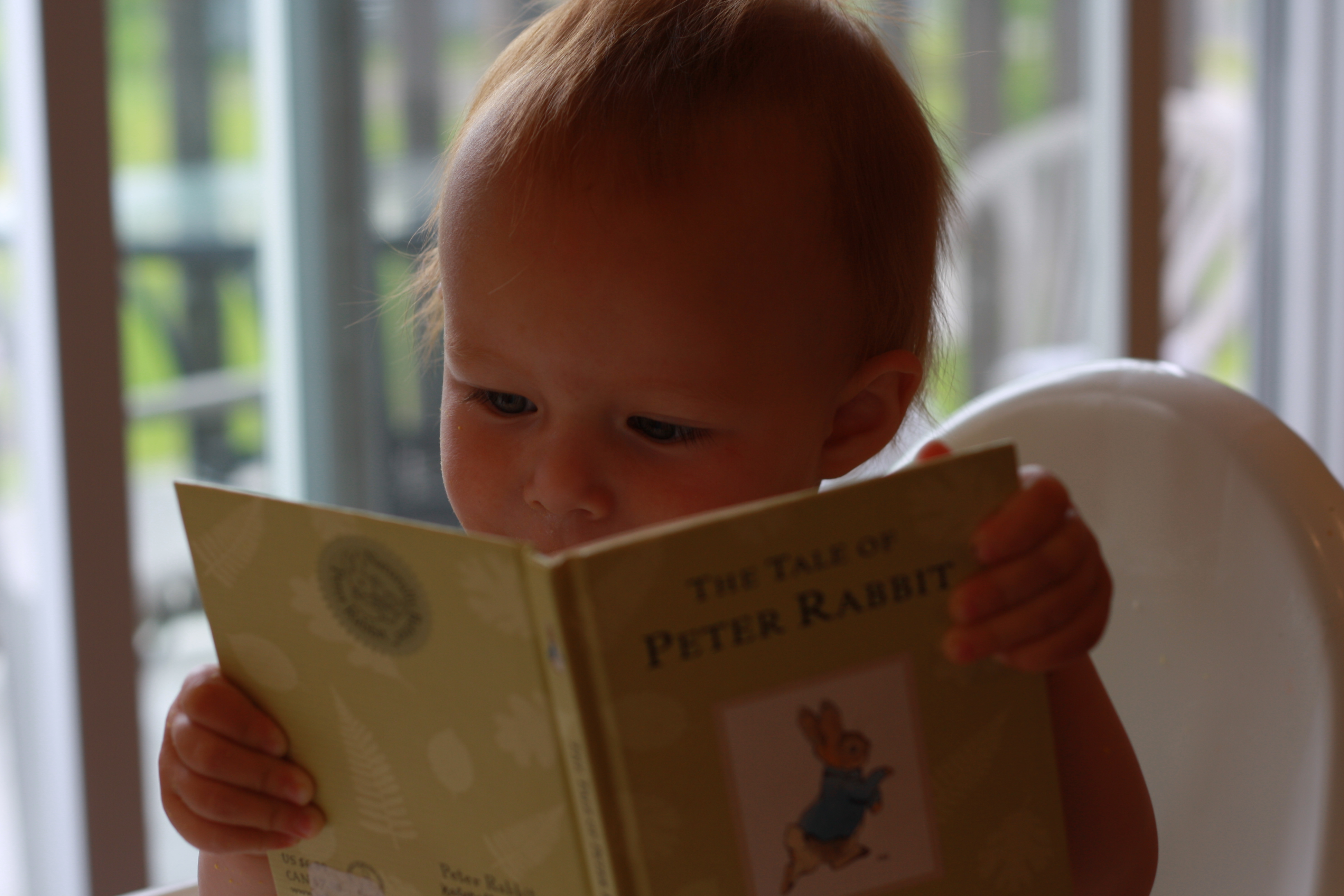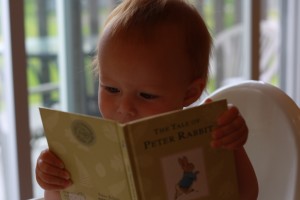Okay, so I am a public librarian. Which makes me kind of biased. However, I really don’t think there is a conflict of interest here – so I’m going to soldier on. The library card: a homeschooler’s best friend. I stand by this statement.
I realize that some homeschoolers like to purchase a complete curriculum (or two or three…) and perhaps may think of their visits to the public library as secondary in nature. Useful for support materials. I would like to make the case that every homeschooler should be intimately connected to their local public library. Why?
- It can be your number one resource. Books are obvious. But, your public librarian can also host classes for your homeschool group, recommend great books and resources you wouldn’t know about on your own, show you how to conduct research, evaluate information, and be a great community connection for your child.
- It’s your place. There is a movement within public libraries to function as the “living room” of a community. How successful this has been will vary greatly by library and experience. You, being on the outside looking in, would probably know better than I. But, those of you who have found a special place in your local library, will identify. Not only is the public library a great place (to read, to spend time, to make a part of your weekly routine), it is also your place. As in, you pay taxes to make it exist. You have a vested interest in it – so make it your own. We go to our local library every Monday. It makes a wonderful start to the week, and is a perfect part of our weekly routine (in fact, we’ll be there today).
- It’s free. Yes, I know, I just told you that you pay for it. Which is true. But, for the most part, libraries don’t charge a fee for service. So take advantage. When almost everything else costs (classes, curriculum, museums etc.), it is great to have something so valuable, be so very priceless.
- You’ll learn, too. Your children will learn something new every time they come. So will you. I truly know of few other places (particularly, indoor places) with the potential to inspire so thoroughly (again, note the bias).
If your child doesn’t have a library card, go and get one for them today (at our library, even babies can have their own). You can use it as their first introduction to managing their finances, time, resources etc. It’s a great tool for promoting responsibility.
But, of course, more than that, it’s the ultimate tool for opening their minds to lifelong learning, and the capacities of human potential.
I could wax poetic all day (which I won’t subject you to). I’ll just end with two thoughts.
One, homeschoolers don’t necessarily need a curriculum designed for them by a company that markets to homeschoolers. They do need access to information about the things that interest them and the skills they need to acquire. Enter the public library.
The second and final thought, please don’t impose an unreasonable limit on the number of books your child takes out. One is just not enough!
Now, with that, go ahead and be inspired. Introduce yourself to your librarian, get a library card, and whatever you do, don’t forget to browse for yourself, too.






I love the photo. So sweet! And a little classic Peter Rabbit never hurts.
Agreed. Got to love Peter. Now, off to the library…
Very beautifully said. Come on, home-schoolers….we librarians are waiting for you!
I love it. Thanks for the comments!
My kids look at a trip to the library as other children relish a trip to the candy store. They ask to ride their bikes the 4 miles to our town’s tiny library (but they don’t care for the ride back- all uphill). We go at least once a week and love the big city library that is free to all state residents. However, most towns in Maine charge non-residents to get a card, the city closest to our winter home charges $55 a year. But we will willingly pay to be able to read new and fresh material and participate in activities- after all, it is much cheaper than buying 20+ books a week off Amazon!
That’s so interesting. Charging a yearly fee for a library card. Fascinating and unsavoury. But, you’re right. I’d pay it anyways. As for the bike ride – I so know. It’s nearly impossible to get my son home from a bike ride (especially uphill!).
Hi there! Just came over from The Common Room and I had to chime in and say what a lovely post this is. I completely agree! As a homeschooling family, the library is our number one (only, ahem) resource. We are so lucky to have access to a wonderful library (free!)and our librarians are so kind and eager to help us learn. My kids are 5 and 3 and we participate in story hour and had so much fun in the summer reading program this year. I just can’t say how much we love our library. Thanks for sharing!
Always great to hear library love stories. And to hear about how important they are to homeschooling families. We do summer reading club, too, and my son loves it.
The Carnival of homeschooling is up, and this post is in it. Please help us all out by spreading the word.=)
I was only homeschooled for my final two years of high school, but I was always a bookworm growing up. We’re only three miles from our current local library, which is aso hooked into a larger library “system” that allows us to borrow books from outside of our veeeery small local one. They even havea website where we can look up said books and place a hold to have them delivered to our local branch.
That said, I am looking forward to when my (currently 5 1/2 month-old) son is old enough to have his own card and we can start our reading adventure together.
Never too young to start. Seriously. Read her board books now (unless you already do). There is so much they take in from reading with you, right from birth. Bonding, the sound of language, looking at pictures (especially faces), which way the book faces, how to turn pages… Early literacy is my particular passion and specialty, so I could go on. But, I know what you mean, I am looking forward to when my son can read with and to me. (You should check out the book, The Reading Promise, for inspiration).
As for small libraries, we have a few here, too. There is something so wonderfully magical about small local libraries. I love them. And yes, placing holds is a thing of magic.
Thanks for reading!
Hi, followed you over here from The Common Room. I have to say – I love LOVE my library! And I totally agree that it is the best resource (as it was when I taught public school, also). I plan so many units around books. In fact, one of the first places I go when planning my curriculum is straight to our fabulous local library, get all the books I can on the topic I want to teach, THEN plan my activities. You lead with literature in lessons on math, science, social studies, reading (of course!), writing … pretty much everything!
Thanks for the post.
Oh, and here’s MY librarian’s blog: http://www.amomssparetime.blogspot.com
Ooh. A librarians blog. Always a treat. As is a resounding plug for public libraries. Thanks for reading!
I have loved the library for many years, but find I must wean myself and my family from it now. The reason is that it is a harbor for all kinds of unsavory influences. Our oldest child was on a library youth advisory board, and she fell under the influence of values that are opposed to ours, and she struggled with the conflict for many years.
Free is nice, but nothing is truly free.
I completely understand your perspective. It is hard when our children face challenges, especially those that from viewpoints that oppose ours.
It is certainly too bad that your daughter had difficulty resulting from a library program. However, I would disagree that libraries harbour unsavoury influences. Even yours. People will always meet with opposing viewpoints, and understanding that people have different values from one another is a part of life.
Chances are your daughter will (has?) come out of it stronger, especially if you’ve given her a solid grounding in both your values and empathy and understanding of the values of others.
After all, freedom of information and the exchange of ideas in a democratic society is the hallmark of public libraries.